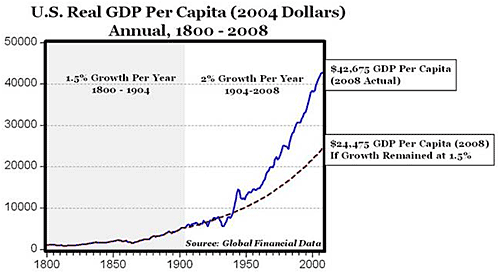
Econ Fail: This Is Why Stimulus Packages Never Work
To be effective, in theory, stimulus spending must be “timely, targeted, and temporary,” but policymakers typically lack the information and resolve necessary to meet those criteria.
In a study published by the Mercatus Center at George Mason University on Tuesday, Jason Taylor and Andrea Castillo argue that, “most countercyclical spending programs do not follow the three Ts, which may undermine their ultimate effectiveness.”
The concept of the three T’s was first advanced by John Maynard Keynes, the original advocate of deficit spending, as a necessary precondition for an effective economic stimulus.
To be “timely, targeted, and temporary,” Keynes said, stimulus spending should take effect while the economy is still operating short of its capacity, target the sectors that can make best use of it, and last only until the economy has sufficiently recovered from a contraction.
But the authors contend that from the very beginning, politicians have typically implemented Keynes’ recommendations selectively, eagerly supporting deficit spending as an antidote to recession (not to mention as a way of disbursing “free” benefits to voters back home), but then refusing to pare back the stimulus during periods of economic growth. (RELATED: Senate Hearings to Investigate Stimulus Contractors)
One “major outlier” they hold up as a model of adherence to the three T’s is the Civil Works Administration (CWA), which was created in 1933 to allow the government to directly administer “activities that could be done quickly and without long planning delays,” rather than providing grants to the states for those purposes.
Although that wording may sound like long-form for “shovel-ready projects” to the modern ear, the CWA delivered on its promise.
Over the course of 136 days, the agency undertook 177,600 projects, employing millions of workers at a cost of $850 million ($15.4 billion in 2004 dollars), and then “effectively ceased operation.”
In contrast, a 2012 study of “Economic Reports of the President” from 1953 to 2011 “concludes that policymakers have consistently struggled to properly time fiscal stimulus spending,” and that, “government spending generally peaked well after the economy had already entered the recovery stage.” face)(*^%
The reason for this, they posit, is that lawmakers lack “reliable contemporary data,” so that by the time they can identify a problem, it may no longer even exist. (RELATED: Analysis: Real Stimulus Spending is at Least $2.5 Trillion Since 2008)
In November of 2001, for instance, the government officially declared that a recession had begun in March, eight months earlier, prompting President George W. Bush to call for a stimulus package consisting of tax rebates. Not until several months later would it become clear that the recession had actually ended in November, making the stimulus wasteful and unnecessary.
The 2001 tax rebates are also held up as an example of poorly targeted stimulus, because “even if they were well timed, most recipients simply saved their rebate checks,” rather than boosting demand by spending more.
Similarly, the Obama stimulus was famously “not as shovel-ready as we had hoped,” and many of its programs turned out to wasteful, or even counterproductive, “which may help explain why it has so many detractors.”(RELATED: Obama Quiet as GOP Taunts Him for Failed Stimulus Plan)
Unfortunately, “politicians face strong temptation to continue stimulus spending past the end of a recession,” because even when stimulus programs fail to achieve their objectives, some segment of the population still benefits from them, and put pressure on representatives for their continuation.
Historical experience from the Great Depression to the Great Recession, the authors conclude, makes clear that the idea that stimulus spending can be timely, targeted, and temporary “is operating under a false premise.”
If rigorous adherence to the three T’s were possible, they argue, then “the economics profession would be far more unified behind the idea of using Keynesian fiscal measures.”
Follow Peter Fricke on Twitter






